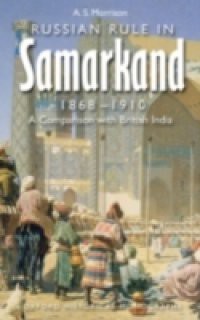Russian Rule in Samarkand examines the structures, personnel, and ideologies of Russian imperialism in Turkestan, taking Samarkand and the surrounding region as a case-study. The creation of a colonial administration in Central Asia presented Russia with similar problems to those faced by the British in India, but different approaches to governance meant that the two regimes often stood in stark contrast to one another. While the Russian administration wascharacterised by corruption and inefficiency, British rule in India was often more violent, and its subjects much more heavily taxed. Opening with the background to the political situation in Central Asia and a narrative of the Russian conquest itself, the book moves on to analyse official attitudes to Islam and to pre-colonial elites, and the earliest attempts to establish a functioning system of revenue collection. Uncovering the religious and ethnic composition of the military bureaucracy, and the social background, education and training of its personnel, Alexander Morrison assesses the competence of these officersvis-Ã -vis their Anglo-Indian counterparts. Subsequent chapters look at the role of the so-called 'native administration' in governing the countryside and collecting taxes, the attempt to administer the complex systems of irrigation leading from the Zarafshan and Syr-Darya rivers, and the nature andfunctions of the Islamic judiciary under colonial rule. Based on extensive archival research in Russia, India, and Uzbekistan, and containing much rare source material translated from the original Russian, Russian Rule in Samarkand will be of interest to all those interested in the history of the Russian Empire and European Imperialism more generally.




 7.57 (21)
7.57 (21) 















